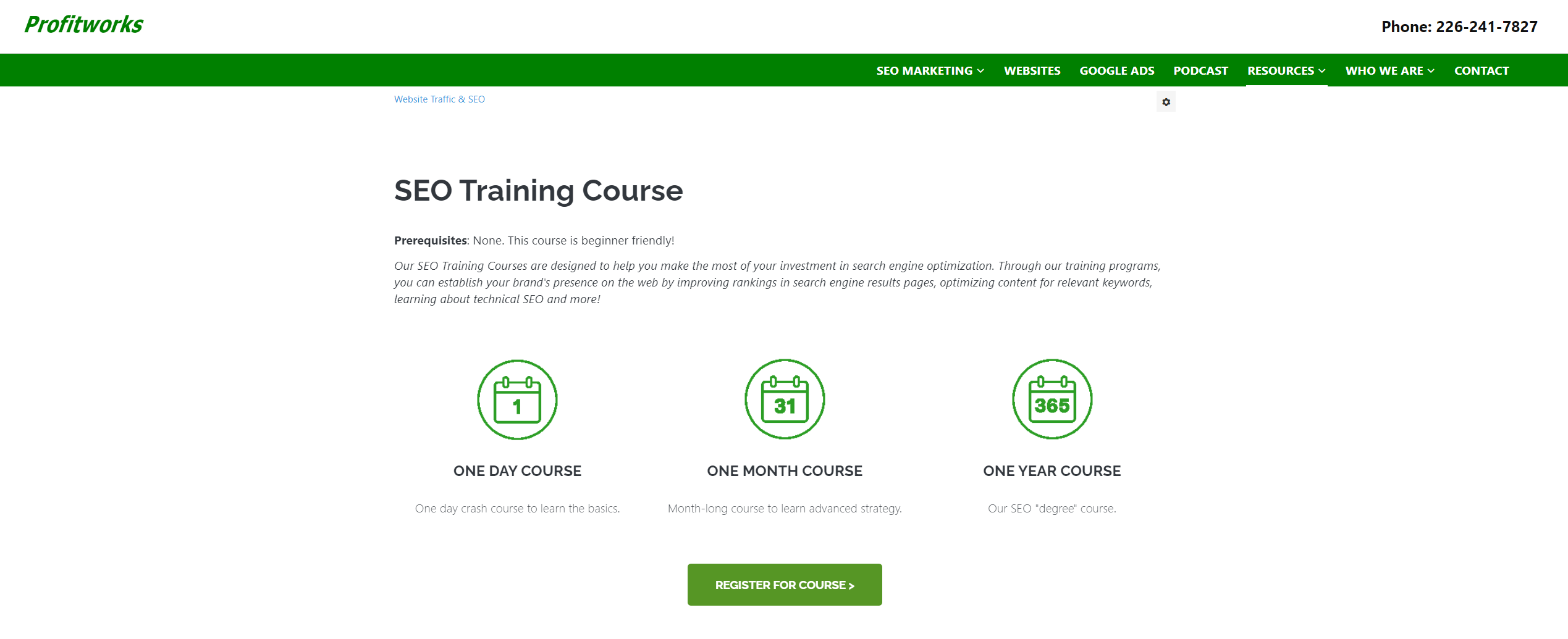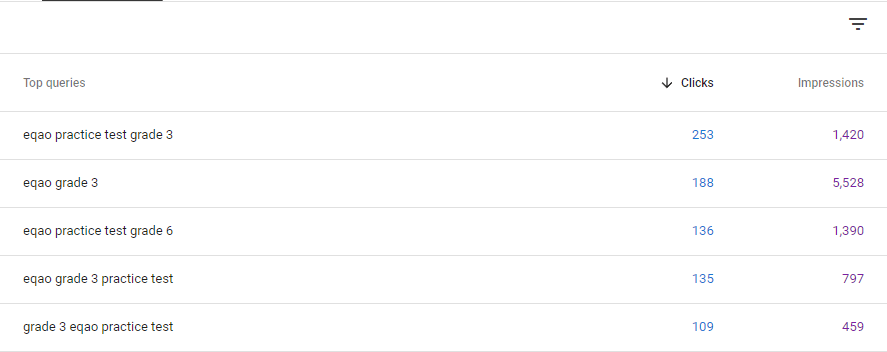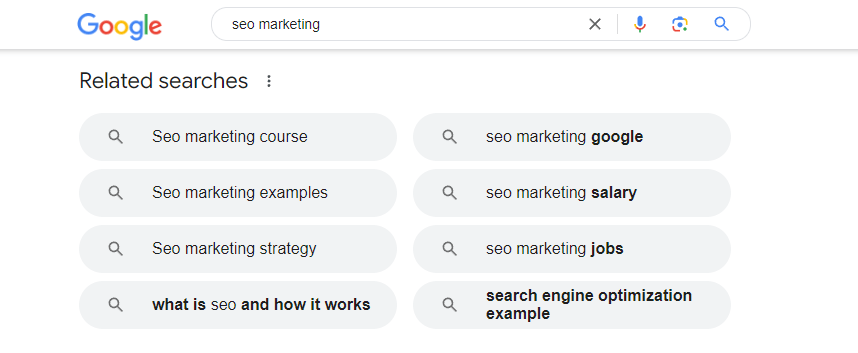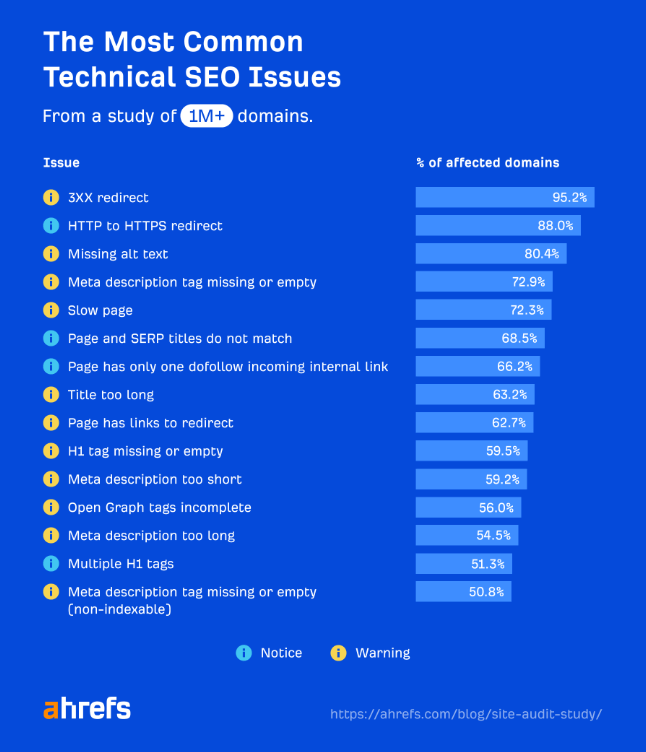How to Get SEO Results Faster
The #1 way to get SEO (Search Engine Optimization) results is to consistently produce high-quality, relevant content that provides value to your audience. In this article, you will learn some techniques to help increase SEO results.
In digital marketing, search engine optimization (SEO) is essential for enhancing online visibility and attracting organic traffic. It's a fundamental strategy that influences your position on search engine results pages (SERPs) and is crucial for brand awareness and long-term digital success. However, SEO is a marathon, not a sprint, with results typically taking months to materialize. This can be challenging for businesses eager for quick wins.
The pursuit of faster SEO results has led to the development of strategies aimed at speeding up this process. While instant success in search engine optimization is unrealistic, certain targeted actions can indeed expedite improvements in search rankings and traffic flow. This blog post explores accelerated SEO strategies, offering a blend of technical, content, and off-page optimizations to help you achieve quicker and more effective SEO outcomes.
Click on each corresponding link to jump ahead:
- On-Page and Off-Page SEO Strategies for Immediate Impact
- SEO Fundamentals Every Business Should Know
- Keyword Research and Content Creation Optimization Strategies
- Techniques to Optimize Your Technical SEO
- Conclusion
For more help with anything SEO-related, Contact Profitworks Today.
1) On-Page and Off-Page SEO Strategies for Immediate Impact
Optimizing both on-page and off-page SEO elements is crucial for improving your website's search engine rankings quickly. Below, there are key strategies for immediate impact in both areas.
On-Page SEO Strategies
- Title Tags and Meta Description Optimization: Your title tag and meta description are among the first things search engine users see. Crafting descriptive, keyword-rich title tags and meta descriptions can significantly improve click-through rates (CTR) from search results. Keep title tags under 60 characters and meta descriptions around 160 characters to ensure they display properly on SERPs.
- Headings (H1, H2, etc.) and Their Importance in SEO: Headings help structure your content, making it easier for both users and search engines to navigate. Use H1 tags for your main title, followed by H2s and H3s for subsections, incorporating relevant keywords without sacrificing readability. This hierarchical structure enhances the user experience and helps search engines understand your content's context.
- Image Optimization for Faster Loading Times and SEO: Images can significantly slow down your site if not properly optimized. Compress images and use descriptive, keyword-rich file names and alt tags to improve page loading times and SEO. This will enhance user experience and contribute to better rankings, as search engines favour fast-loading pages.
Off-Page SEO Tactics
- Building High-Quality Backlinks: Backlinks from reputable sites signal to search engines that your content is valuable and trustworthy. Engage in guest posting and outreach efforts to secure links from industry-related websites. This not only boosts your site's authority but can also drive targeted traffic.
- The Role of Social Media in SEO: While social media links do not directly influence rankings, they can increase your content's visibility and shareability, leading to more organic backlinks. An active social media presence helps spread your content wider, potentially attracting backlinks and enhancing your site's SEO.
- Local SEO Tactics for Businesses Targeting Local Customers: If your business serves local customers, optimizing for local SEO can yield quick results. This includes claiming your Google My Business listing, ensuring your name, address, and phone number (NAP) are consistent across the web, and gathering local reviews. Local SEO helps your business appear in local search results and the "local pack," driving more foot traffic and local online visibility.
2) SEO Fundamentals Every Business Should Know

Source: Profitworks
To navigate the journey toward faster SEO results effectively, it's crucial to first understand the foundational elements search engine optimization is built on. These core components—keywords, content quality, backlinks, and technical SEO—are the pillars of any successful SEO strategy.
- Keywords and Content Quality: At the core of SEO are keywords, the terms potential customers search for online. Successfully integrating these into high-quality content not only helps search engines grasp your site's focus but also addresses user intent and enhances findability. Beyond just adding keywords, it's about crafting content that's deeply researched, relevant, and engaging, meeting the specific needs of your audience. This approach improves your site's ranking and attracts valuable backlinks, signalling to search engines the authority and usefulness of your content.
- Backlinks: Backlinks, or inbound links from other websites to your own, serve as endorsements of your content's credibility and authority. Search engines view these links as votes of confidence, with higher-quality links contributing more significantly to your site's authority. A robust backlink profile can significantly accelerate your SEO success, as it suggests to search engines that your content is valuable and worthy of a higher ranking.
- Technical SEO: This aspect of SEO focuses on optimizing the infrastructure of your website to ensure search engines can crawl and index your site effectively. It encompasses a range of elements including site speed, mobile responsiveness, secure connections (HTTPS), and structured data. Technical SEO is crucial for a successful SEO strategy because it lays the foundation for your site's visibility and usability. Without a technically optimized site, even the highest quality content may struggle to rank well. It ensures that search engines can easily access, understand, and prioritize your content, leading to better search performance and user experience.
3) Keyword Research and Content Creation Optimization Strategies
Keyword research and content creation are integral components of any successful SEO strategy. Below you'll find practical tips on how to optimize these important elements to ensure that your content both resonates with your target audience and ranks highly in search results.
Keyword Research
Effective keyword research is pivotal for enhancing SEO and securing faster results. This process involves several key actions that can dramatically improve your site's search engine visibility and user engagement:
- Identify Long-Tail Keywords for Quicker Wins: Focusing on long-tail keywords is a strategic move for quicker SEO wins due to their specificity and lower competition. These keywords attract more targeted traffic and can also lead to higher conversion rates. Finding the right long-tail keywords involves utilizing keyword research tools to gain insights into the search volume and competition, understanding the specific queries your target audience might use, and exploring the "searches related to" section on Google for additional keyword ideas.

Example of Long-Tailed Keywords
- Integrate Keywords Naturally into Your Content: The integration of keywords into your content should never compromise the quality or readability of your text. To enhance your content's SEO value without detracting from the reader's experience, it's crucial to incorporate keywords contextually, distribute them evenly throughout your content to avoid keyword stuffing and use synonyms and variations to ensure a natural and engaging flow.

Example of non-natural keyword integration
- Utilize LSI Keywords: Latent semantic indexing (LSI) keywords are conceptually related terms that provide search engines with deeper insights into the context of your content. By including LSI keywords, you can boost the semantic relevance of your content to the main keywords, capture a wider range of related queries, and enrich the overall quality of your content by covering broader aspects of your topic. These keywords can be identified through the use of SEO tools or by examining the content of top-ranking pages for your primary keyword.

Example of LSI Keywords
By emphasizing these strategies in your SEO efforts, you can significantly enhance your content's relevance and visibility, paving the way for quicker and more effective results in search engine rankings. Businesses can do this by contacting a professional SEO agency that has the necessary expertise and skills to work with keywords efficiently and achieve convincing results faster.
Content Creation
Creating high-quality, engaging content is critical in SEO, as it serves both to attract an audience and to increase search engine rankings. Here’s how to optimize your content strategy for better, faster SEO results:
- High-Quality, Engaging Content: The essence of impactful content lies in its ability to solve readers' problems or answer their questions. Achieve this by conducting thorough research, adopting an engaging writing style, and enhancing your text with relevant visuals. This approach not only attracts visitors but also encourages them to stay longer on your site.
- Content Freshness: Updating your content regularly ensures that it remains accurate and relevant. This may mean revising existing articles to include new data or insights, or republishing older posts with significant updates. An important nuance to keep in mind is that the type of content directly depends on the type of your site. For example, the content of an eCommerce site and a service agency will be completely different. Accordingly, there will be a difference between SEO and eCommerce SEO; to optimize content for the latter, businesses should pay special attention to avoiding new repetitive product descriptions.
- Effective Content Types: Some formats tend to deliver quicker SEO results due to their popularity and shareability. For example:
- How-to Guides: Offer step-by-step solutions to common problems, making them highly valuable to users.
- Listicles: Provide concise, actionable information in an easily digestible format.
- In-Depth Articles: Demonstrate your authority on a subject through comprehensive exploration, which can lead to higher engagement and rankings.
4) Techniques to Optimize Your Technical SEO

Source: ahrefs
A technically sound website facilitates easier crawling and indexing by search engines, which can lead to quicker SEO results. Here are several effective techniques to enhance your technical SEO:
- Improve Site Speed: Fast-loading pages provide a better user experience and are also favoured by search engines. You can enhance site speed by compressing images, minifying CSS, JavaScript, and HTML files, and leveraging browser caching.
- Ensure Mobile Responsiveness: With mobile-first indexing, having a mobile-responsive website is crucial. Ensure your site offers an optimal viewing experience across all devices by employing responsive design techniques.
- Secure Your Site with HTTPS: Security is a top priority for search engines and users alike. Migrating your site to HTTPS encrypts data, securing the connection between your website and its visitors, which can boost your search engine ranking.
- Utilize Structured Data: Implementing structured data (schema markup) helps search engines understand the content of your site better. This can enhance your appearance in search results with rich snippets, potentially increasing click-through rates.
- Optimize Your XML Sitemap: An XML sitemap helps search engines find and index your pages more efficiently. Ensure your sitemap is up-to-date and submitted to search engine webmaster tools.
- Fix Broken Links: Regularly check and fix broken links within your site. Broken links can harm your site's usability and SEO performance by preventing search engines from properly crawling your site.
- Improve Website Architecture: A well-structured website enhances user experience and search engine crawling efficiency. Ensure your site has a logical hierarchy, utilizes breadcrumbs, and features an intuitive navigation menu.
5) Conclusion
While SEO success doesn't happen overnight, consistent application of the strategies outlined here, coupled with a dedication to providing value to your audience, can yield significant results over time. Remember, SEO is a journey, not a destination. By focusing on creating high-quality content, optimizing your website for both users and search engines, and engaging in ethical link-building practices, you can establish a strong foundation for long-term success.
Keep in mind that SEO is a dynamic field, and staying informed about industry trends and algorithm updates is essential. Continuously monitor your website's performance, analyze data metrics, and adapt your strategies accordingly. With patience, persistence, and a commitment to excellence, you can enhance your website's visibility, drive organic traffic, and achieve your digital marketing goals. Thank you for accompanying us on this SEO journey, and best of luck as you apply these insights to elevate your online presence.
For any more inquiries about SEO, Contact us.
